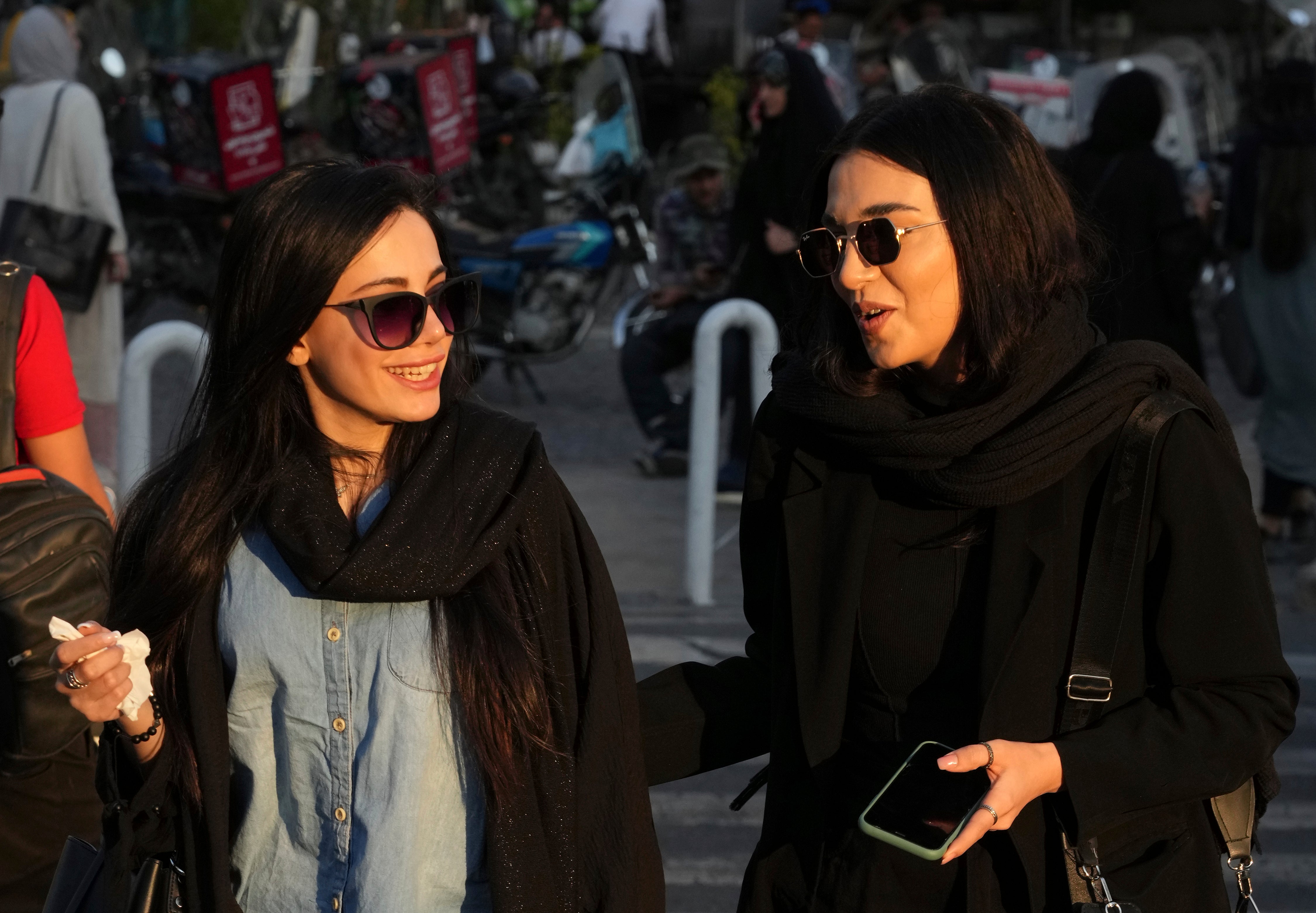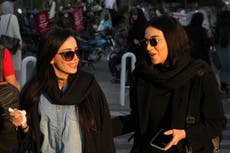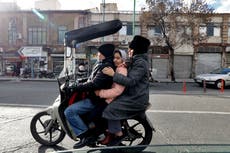Headscarf crackdown in Iran sees women sacked and their cars confiscated
Woman made to wash dead bodies in morgue as part of her punishment under strict regime

Women in Iran are having their cars confiscated and being sacked from their jobs for not wearing headscarves, campaigners have warned.
New research, by Amnesty International, noted authorities in the country have launched a major clampdown on women for not abiding by stringent headscarf rules.
The prominent human rights charity said the crackdown involves thousands of police warnings being sent out via text message, the seizure of cars, women being fired from jobs, as well as having court action taken against them.
A woman was forced to wash dead bodies in a morgue as part of her punishment earlier this month, researchers warned.
Police are believed to have sent out more than 133,100 texts demanding the cars are not used for a set period of time, as well as confiscating 2,000 cars, handing over more than 4,000 “repeat offenders” to the judiciary, and singling out and referring 300 “offenders” to the courts.
Women’s rights are profoundly restricted in Iran and wearing a headscarf is compulsory in public for all, with those who do not wear a hijab, or have some hair on display while wearing a hijab, facing punishments ranging from fines to imprisonment.
On 16 July, a spokesperson for the police declared police patrols would be reinstated to impose the compulsory wearing of headscarves, as well as warning women and girls who are uncovered in public could face legal action.
While in the two months leading up to mid-June, Iranian officials state the police delivered nearly a million warning messages via text to women captured on camera without wearing headscarf while in their cars.
Some women have been temporarily blocked or permanently excluded from universities, prevented from carrying out final exams, and stopped from using public transport and banking services for infringing headscarf rules. Meanwhile, hundreds of businesses have been forced to shut their doors for not imposing the compulsory wearing of hijabs.
A woman living in Esfahan province, who was told to stop using her car for half a month via text message due to taking off her headscarf when driving, told researchers the “threats” the authorities are issuing have a “very negative impact” - both “emotionally and psychologically”.
She added: “The Islamic Republic wants to show that they can go to any extent when it comes to enforcing compulsory veiling ... They want to present themselves to the international community as moving away from violence but, in reality, they are carrying out these actions discreetly. They are truly creating fear in our existence.”
Agnes Callamard, Amnesty International’s Secretary General, said: “Morality policing in Iran is back. Today’s crackdown is intensified by mass surveillance technologies capable of identifying unveiled women in their cars and pedestrian spaces.
“The international community must not stand idly by as the Iranian authorities intensify their oppression of women and girls.”
She argued governments around the world “must do everything in their power to support women and girls fleeing gender-based persecution and serious human rights violations” in the country, as well as making sure they “can access swift and safe refugee procedures”.
Ms Callamard added: “Under no circumstances should they be forcibly returned to Iran”.
Women can be seen being assaulted by officials in the Iranian capital of Tehran as well as the northern city of Rasht online recently, with security forces aiming teargas at those who aid women to flee arrests in Rasht.
Protests erupted across Iran after Mahsa Amini’s death in police custody in mid-September last year. The 22-year-old Kurdish woman died after being detained by the morality police for allegedly infringing Iran’s stringent rules on hijabs.
Women have waved their hijabs, hurling them in bonfires and chopping off their hair during protests in what have been the largest demonstrations to rock Iran’s streets in three years. However, protests have been impeded by a brutal crackdown launched by the state.
Join our commenting forum
Join thought-provoking conversations, follow other Independent readers and see their replies
Comments




Bookmark popover
Removed from bookmarks